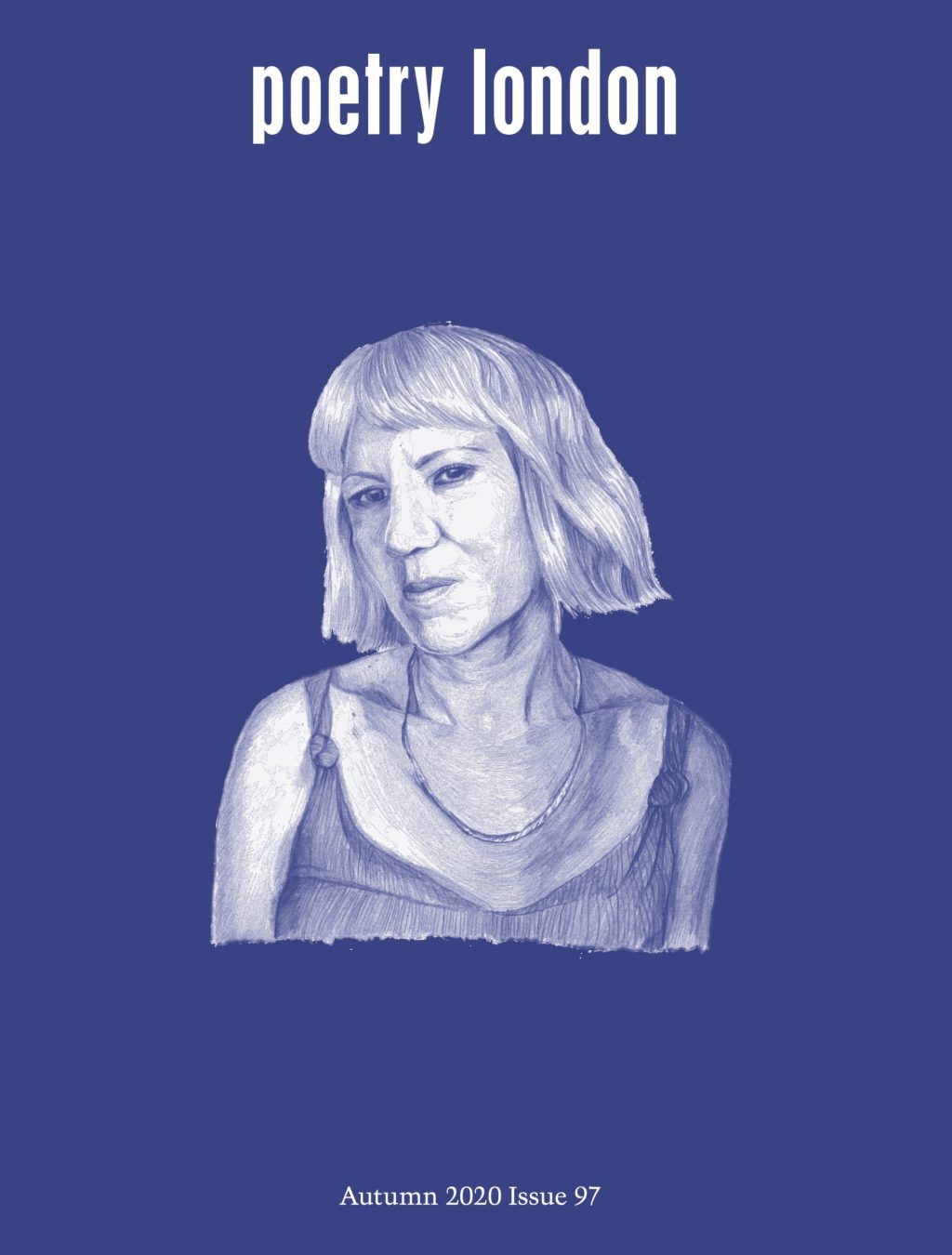Constant Flux: Rachel Long talks to Ali Lewis
AL: Hi Rachel. How are you? What poetry has been seeing you through these difficult times?
RL: Throughout early-to-mid lockdown I couldn’t read a thing. That’s never happened before. I’ve always found solace in reading. Then I started chain-smoking novels. Mostly by brilliant Black women: Alice Walker, Bernardine Evaristo, Brit Bennett. I think I needed the novel to burrow into different narratives and possibilities, an escape from here. Not that a poem doesn’t do that – it can – but I needed a sustained escape, a 200-page-plus escape. During that time, I was also finalising the edits for my collection, so I think I needed something different to read at the end of each day.
AL: The title of your new collection, My Darling from the Lions, is taken from Psalm 35, and the psalms are woven throughout the first section. In ‘Bike’, for example, the speaker recites psalm 23 (‘surely goodness and mercy will follow me’), and fragments of psalm 51 act as a broken refrain in ‘8’. How important to you are the cadences and the language of the psalms, and of prayer?
RL: Very important, but without me realising for a long time. Those psalms are woven through me, so perhaps no mistake that they are, in turn, woven in throughout my poems.
My sister and I would be dressed in our best and ushered by our mother into church every Sunday morning. I grew up listening, or half-listening, to the tempo, repetition, rise and fall, call and response of prayers, psalms, sermons, hymns, recited, often from heart, all around me for hours, weekly. I must have internalised them, surely, but on the surface, I remember only finding the services painful, boring, an act of endurance, pleading for the end.
But those cadences, that Biblical way of expressing – fierce, floral/pastoral, protecting – was in me, part of me, just dormant, unvisited. It wasn’t until I started reading and writing poetry in my late teens, that it struck me that the psalms are so poem-like, that I wasn’t always able to explain how or why rhythm worked, but I could just do it, I understood it on a ‘natural’ level.
Psalm 91, for example, is an exquisite poem. Some of the images of protection, the metaphors for danger. I return to this psalm and I think, what a beautiful way to say I love you, I will protect you, no matter what:
He shall cover thee with his feathers, and under his wings shalt thou trust: his truth
shall be thy shield and buckler.
Thou shalt not be afraid for the terror by night; nor for the arrow that flieth by day;
Nor for the pestilence that walketh in darkness; nor for the destruction that wasteth at
noonday...
For he shall give his angels charge over thee, to keep thee in all thy ways.
AL: ‘Lord, how long wilt thou look on? rescue my soul from their destructions, my darling from the lions.’ It came as a surprise to me that the ‘Darling’ of the title is the self – one’s own soul. The New American Standard Version, for example, translates the same verse as ‘Lord, how long will You look on? Rescue my soul from their ravages, My only life from the lions.’ To what extent is this a book that deals with the self, self-rescue, and self-love?
RL: It came as a surprise to me too! The ‘Darling’ being me – that I began to think of myself as worth saving.
This is not to say I am ‘healed’, that my ‘Darling’ is out of the woods. I’m not running myself self-love bubble baths each night, but I feel closer to another version of myself, a slightly stronger and more honest version than the self who began the journey of writing this collection.
I did not set out to write a book about healing, and yet in the writing of it, over the years, it became an act of healing. This was always going to be a personal book, I think, but the person in the book changed. She grew up; the more she looked at herself, the more she understood. The self is in constant flux and I think that lends itself to poetry – the subject can appear the same, but something can have shifted massively just under the surface and changed the/their meaning.
The poem also allows you to view yourself as a character. You can choose what angle you tell, how you want to shoot and backdrop the story. That can be healing, or sometimes just massively helpful. You can keep what you want and discard the rest. You can create yourself anew.
AL: What hopes (or fears) do you have for the near future?
RL: I hope that the heart-mission of Black Lives Matter will not be bulldozed or diminished as momentary, or asking for too much, or too radical, or not cute anymore, or too much effort to fully support, that it will be our revolution.
I fear that the heart-mission of Black Lives Matter will be bulldozed and diminished as momentary, because they asked for too much, were too radical, could not keep it cute, because fully supporting it became too much effort; that we will miss our revolution, and things will remain exactly as they are.
Rachel Long’s debut collection My Darling from the Lions (Picador) is shortlisted for the 2020 Forward Prize for Best First Collection. She is the founder of Octavia Poetry Collective for Womxn of Colour.


